Ficus is a fairly popular indoor plant. Most often in homes and offices you can find ficus Benjamin. It does not require special growing conditions, which is why it is loved so much. But in order to maintain its decorative qualities, it is necessary to provide it with good nutrition. Properly selected fertilizers for ficus Benjamin and timely feeding will help preserve the beauty of the plant.
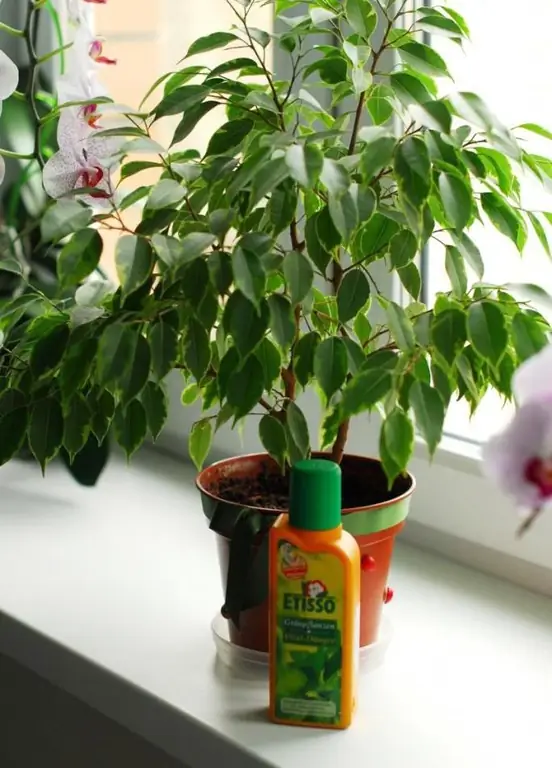
Conditions for proper development
Ficus Benjamina feels good in a spacious pot. This does not mean that you need to immediately plant it in a flowerpot, you just need a pot where the plant will freely take root. At the same time, the ficus does not like frequent transplants and changes of residence, for this he needs constancy. He reacts to all changes with a protest -sheds leaves.
Watering the plant needs moderate, necessarily warm settled water. Excess moisture and low temperatures lead to root rot. Therefore, excess water, which is glass in the pan, must be immediately drained.
The shower for Benjamin's ficus should also be warm, and after that the leaves should be wiped with a damp cloth. Otherwise, dusty stains will remain on the leaves, and the plant does not like this.
Nutrition needed by ficus and signs of its shortage
To know exactly what fertilizers are needed for ficus Benjamin, you need to figure out what the ficus eats.
For the proper development of a plant, it needs various macro- and microelements. There are 13 of them, nitrogen is considered the main one. It is nitrogen that forms the green mass, is responsible for the rich color of the leaves. Thanks to him, photosynthetic processes normally proceed.
Also ficus needs:
- In phosphorus, thanks to which the root system of the plant grows and develops and resistance to diseases increases.
- Potassium, thanks to which the plant tolerates short-term droughts well.
- Calcium, which improves the metabolic processes of the flower.
These are the main elements, magnesium, manganese, sulfur, iron, zinc, copper, molybdenum, cob alt, boron can be noted as additional.
When the soil begins to lack certain nutrients, the flower starves. This can be seen by the following signs:
- Growth slows down and then stops altogether.
- The stems stretch and become thin.
- Leaves turn pale, yellow spots appear.
- The elasticity of the leaves is lost, they can dry out and die.
- The plant's immune system begins to work poorly, so susceptibility to disease increases.
- Low pest resistance.
Ficus Benjamin should be fed regularly until the above signs begin to appear.
Ficus will also react to excessive fertilization: it will shed its leaves, and the ground will be covered with white bloom.
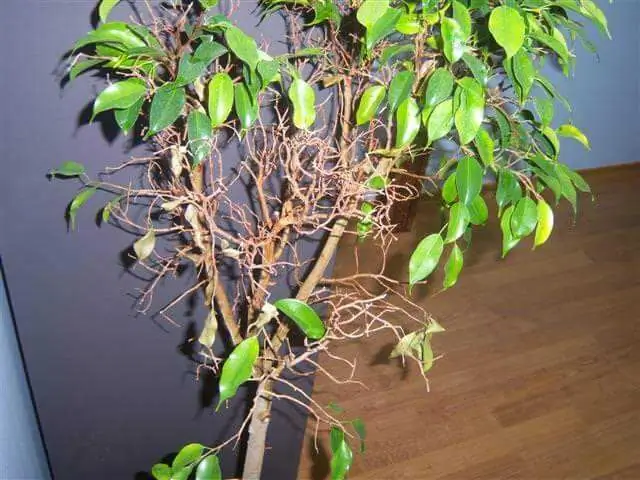
How to properly feed ficus Benjamin
Fertilizers are needed for the active growth and development of the plant. This is especially important during the growing season.
In the summer, the flower needs to be fed with nitrogen-containing fertilizer. After that, the growth of deciduous mass will begin. Such top dressing is also suitable in order to rehabilitate a damaged plant.
Since this flower is quite high (at home it grows up to 3 meters), fertilizers for Benjamin's ficus should be varied. In specialized stores, you can buy ready-made fertilizers or cook them yourself at home.
Before feeding, you need to make sure that the ficus does not become cramped in the pot. As a rule, it is transplanted once every 4 years, when the roots completely entangle the soil in a pot. It is best to transplant ficus in spring or autumn when it is warm.
It is not necessary to prepare the soil for transplanting yourself, it is easier to purchase a special soil mixture for ficuses in the store. In special soil, the plant will take root faster.
Fertilizers for ficus Benjamin will depend on several factors: soil, plant age, season. For example, if the substrate does not contain soil, it means that there are absolutely no nutrients in it, and in this case, top dressing is carried out all year round. Ordinary land mixtures are periodically fed with organic or mineral fertilizers. As a rule, top dressing is carried out in the summer, every two weeks.

How often to feed ficus
Feeding ficus Benjamin at home is not carried out as often as other home flowers. But at the same time, the amount of nutrients should be enough for good nutrition.
The larger the crown of the plant, the more nutrients it will need. In about two months, the ficus completely depletes the soil.
Intensive feeding will be required during the active growth of the plant - in the spring and summer.
The last time feeding ficus at home is carried out at the end of September. When the cold comes, the ficus goes into a state of rest, all processes slow down. The need for nutrition is reduced, it is not necessary to fertilize it during this period.
If in the room where it is grownficus, it is warm and light enough, you can continue feeding, but you need to reduce the rate and frequency.
What fertilizers for ficus Benjamin are
By origin, fertilizers are divided into two large types: mineral and organic.
Mineral fertilizers are inorganic compounds that are produced industrially. They have a very high concentration of nutrients, which means that they will give a positive effect faster.
Organic fertilizers are the decaying remains of plant and animal life. They nourish plants well, improve the soil, improve the work of beneficial microorganisms, but their action is slower.
The best fertilizer for ficus Benjamin is the alternation of mineral and organic fertilizers. This approach will provide the flower with the necessary nutrition for full development.

Mineral fertilizers
Today, there are quite a few different fertilizers specifically for Benjamin's ficus. They contain minerals in the right ratio.
All drugs differ in the form of release:
- Dry - in powder, tablets, granules. Solutions are prepared from them or laid in the soil. In the latter case, they gradually dissolve when watering.
- Liquid - with the help of them, root and foliar treatment of plants is carried out. Distinguished by their fast action.
- Sticks - they are loved for prolongedaction (up to several months). Placed next to a flower in a pot. Allows you to save time on caring for the plant.
Organic fertilizers
Organics also differ in properties and composition. Today, organic fertilizers can be purchased at specialized gardening stores. The preparations are sold in dried and compressed form, they do not have an unpleasant odor. It is very convenient to use them, they are excellent fertilizers for ficus Benjamin at home.
The most popular ficus fertilizers that are easy to use at home
- Humus of animal origin is a natural source of nitrogen. It is this top dressing that is used for Benjamin's ficus for leaf density. Most of the nutrients are found in bird droppings. Bird droppings products outperform even manure. They act very quickly, almost like mineral fertilizers. It must be remembered that bird droppings are used only in the form of a solution. Ficus Benjamin can be fed with humus from the manure of cattle, horses, pigs, etc. It is also used as a solution.
- Vegetable humus - in this case, plant residues decompose. This fertilizer has many essential trace elements, it is also used to make a solution.
- Nettle. Nettle feed contains elements such as nitrogen, potassium and magnesium. It is used to strengthen the root system, accelerate the development of the plant, improve the condition of the soil. Leaves and stems need to be harvestedin advance, until the seeds appeared on the nettle. Fill half a plastic bottle with nettles, pour water and leave to ferment for 2 weeks. The result is a dark green liquid, which is diluted with water for use. You need to water the ficus with a solution in a ratio of 1:10, and spray it - 1:20. Proportions must not be violated, as you can burn the leaves and roots.
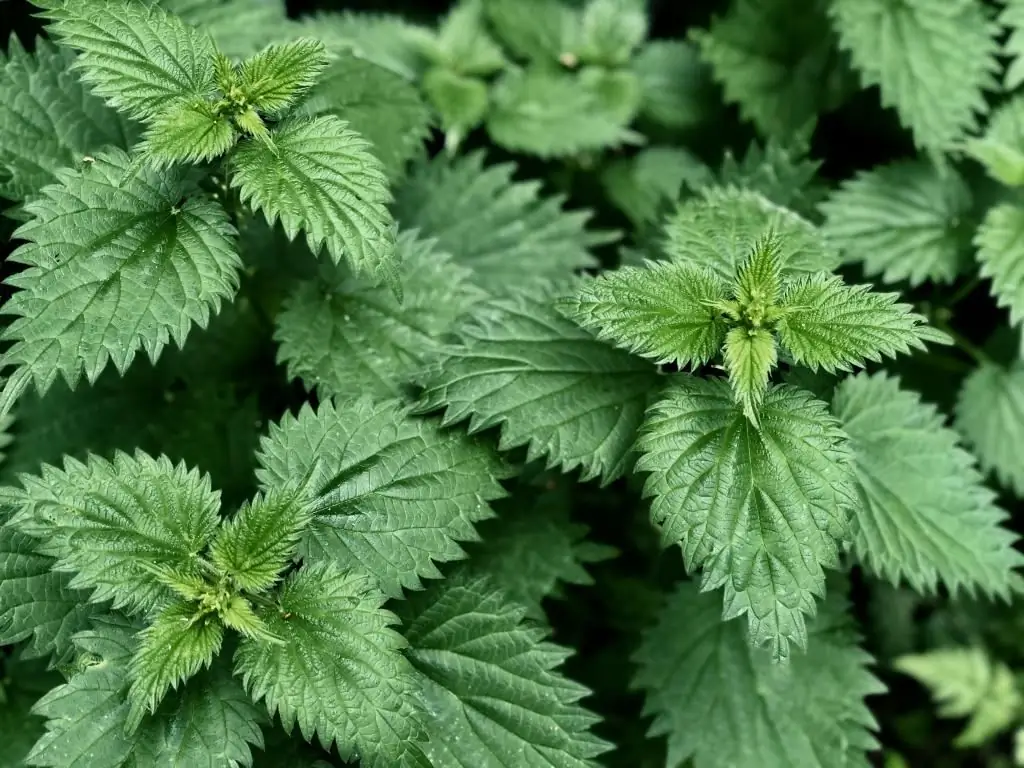
Wood ash. It contains a lot of different elements, including potassium and phosphorus. An infusion is made from ash for ficus: 1 tsp. ash is poured into 1 liter of boiling water and infused for 7 days. Water the flower with this infusion. Also, to protect the plant from pests, you can powder the leaves with ash
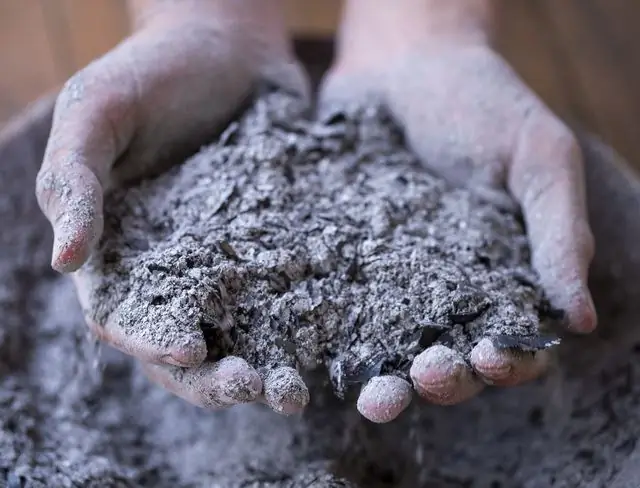
Succinic acid. If Benjamin's ficus sheds leaves, fertilizer is usually not required for it, this is a flower's reaction to external stimuli, such as frequent transplants, changes of residence, or improper care. If there were no changes in the life of the flower, you can feed it with a crystalline colorless substance - succinic acid. It promotes flower growth, increases its vitality, improves soil microflora. For top dressing, you first need to prepare a concentrate: dissolve 1 g of succinic acid in 1 liter of water. For spraying leaves, this concentrate is diluted with water in a ratio of 1:1, for root irrigation - in a ratio of 1:4. It is recommended to feed the ficus with succinic acid once a year,ready-made concentrated liquid is stored for no more than 3 days
Thus, fertilizers for Benjamin's ficus at home can be completely different, the main thing is to strictly observe the proportions when using them.
Root top dressing
Root top dressing - this is watering the plant with nutrient solutions, is the most common way. But in order not to harm the plant, this procedure must be carried out reasonably. It will benefit the flower if you adhere to the following rules:
- Read the manufacturer's instructions and follow them exactly. The dosage may be adjusted according to the appearance of the ficus.
- Sick plants do not need to be fed - in this state they do not absorb nutrients. The flower must first be treated with fungicides and wait until it fully recovers.
- It is not recommended to feed the ficus immediately after transplantation, you need to wait 20-30 days for the plant to adapt and restore damaged roots.
- To prevent burns of the ficus root system, all dressings are applied only to wet soil.
Fertilizers for root dressing can be different: both dry and liquid. It is important that the composition is evenly distributed throughout the pot so that the nutrition goes to all the roots.
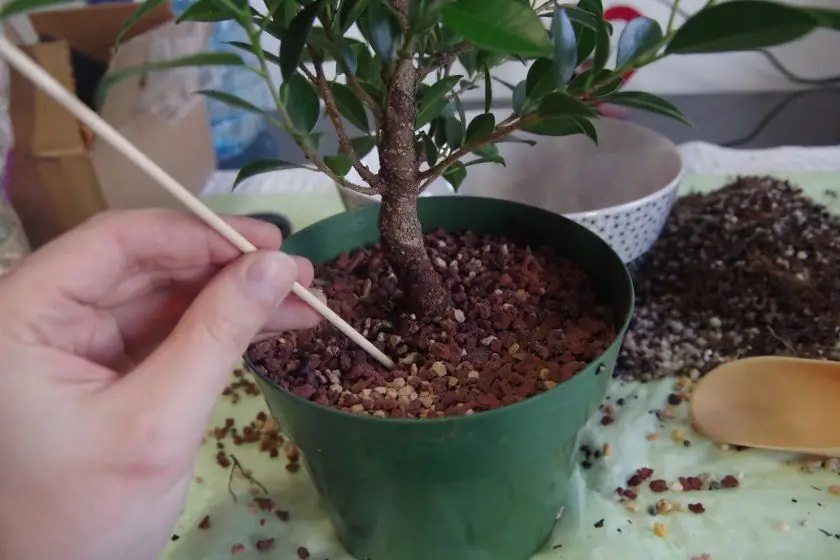
Foliar top dressing
Ficuses also love foliar feeding. Useful substances through the leavesquickly absorbed by plants. Often, foliar treatment is used in emergency cases when the roots cannot take food from the soil. This procedure works very quickly, and the result is visible immediately. But foliar spray solutions are very weak, so they cannot completely replace the main top dressing.
To maximize the effect of the treatment, it is important to carry it out correctly. The leaves must be sprayed with a spray gun, always on both sides. At the bottom of the leaf there are more stomata through which the fertilizer will be absorbed.
It is very important to properly prepare the treatment solution, that is, do not exceed the recommended dosage. Fertilizer can burn the leaves, then the ficus will get sick and die.
Conclusion
In order for Benjamin's ficus to feel comfortable at home, grow and develop fully, it is important to provide it with sufficient nutrition. To do this, you need to use organic and mineral fertilizers in combination, as well as proven folk remedies. Ficus responds well not only to regular feeding, but also to competent care - in this case, it will delight the household with its lush crown. Top dressing for ficus Benjamin for leaf density must be complex, then the result will not be long in coming.






